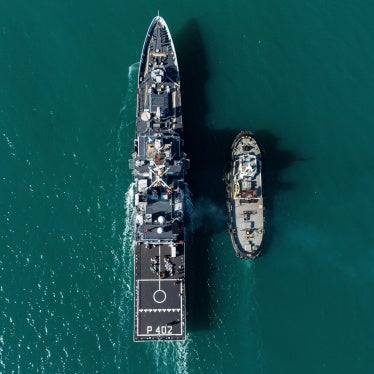By any measure, it should be a historic moment. For the first time, crimes against humanity can be punished and prosecuted in a single world court. Next Tuesday sees the launch session at the UN of the new international criminal court. The signatories to the ICC (77 and rising) will begin selecting judges before the court itself opens for business early next year. In many respects, celebrations are justified. Britain could, however, yet share responsibility for the celebrations turning sour.
The good news is clear. The birth of the court, on July 1, was against heavy odds: many sceptics had been confident that a tribunal with worldwide jurisdiction over atrocities and genocide could never come into being. "Never again", the pious phrase that was heard so often after 1945, had come to seem a vile lie. Never again what?, Cambodians, Rwandans and others could reasonably ask. Now, for the first time in history, a single institution exists which can bring the Pol Pots and Pinochets to justice.
Britain's role in this remarkable saga has, in part, been admirable. Tony Blair's personal commitment made a real difference in the battles that led up to the signing four years ago of the Rome treaty, which paved the way for the court. But there are worrying signs that this early resolve is becoming increasingly shaky in the face of American intransigence.
Washington says it fears US citizens will be unfairly targeted. In reality - as Cherie Blair has pointed out, more explicitly than her husband dares to - the Americans are wrong to fear malicious prosecutions of their soldiers or other US citizens. Checks and balances will ensure that frivolous cases never get to court.
So far, US pressure has not been successful, despite constant attempts to create artificial deadlines. Last month, Washington threatened to sabotage the Bosnian peacekeeping operation unless American citizens were offered special immunity from justice. Despite fissures among supporters of the court, the US backed down somewhat from its ultimate demands. Washington, however, has not given up. It now arm-twists east European countries to do its bidding - including a threat that the Nato door will be slammed in their faces unless they comply with American demands.
The US wants its citizens to be granted impunity for all time. This absurd demand would damage not just the court, but America itself, which can have no interest in creating new enemies. Washington has demanded that Belgrade renounce the terms of the treaty affecting US citizens, while pressing the Serbs to cooperate with the war crimes tribunal in the Hague. The Serbs are not alone in scenting rank hypocrisy.
European foreign ministers meeting in Elsinore this week will discuss how strongly to oppose US pressures; the European commission has already rebuked Romania for caving in. A large dose of Hamletian indecision is likely at Elsinore, but internal battle lines are forming.
Everybody claims to be in favour of the ICC: that is the easy part. European governments are, however, worried that things are going badly wrong, and that London is at the heart of it. Tony Blair stands accused of playing a divisive role in his eagerness not to offend George Bush. British officials have told European counterparts that they oppose any attempt at a coordinated rejection of American demands - just as they did in July when they lined up with the US during a crucial security council debate.
The British insist that they are looking for a compromise which will save the day, while other Europeans indulge in comfortable criticism. This dismissive attitude is alarm ingly reminiscent of the pragmatism that Douglas Hurd liked to boast of when he was foreign secretary and messing up the Balkans. I remember his insistence on the need for compromise ahead of a 1992 peace conference on Yugoslavia - a conference which paved the way for the worst horrors. When I interviewed Slobodan Milosevic in his Knightsbridge hotel a few days later, the Serb leader was clearly delighted to have been let off the hook.
Hurd's determination to make accommodations at any cost represented moral abdication on a grand scale. It would be disastrous if Blair and Jack Straw followed in the shabby footsteps of John Major and Hurd in negotiating a "compromise" which undermined the prospects for lasting justice. Blair and Straw are in danger of trying so hard to please the White House that they poison the international court.
Two-tier justice is no justice at all. One day, Americans must understand that. In the meantime, Tony Blair must not allow himself to become George Bush's partner in weakening European resolve, thus damaging the court that the prime minister himself helped to create.








